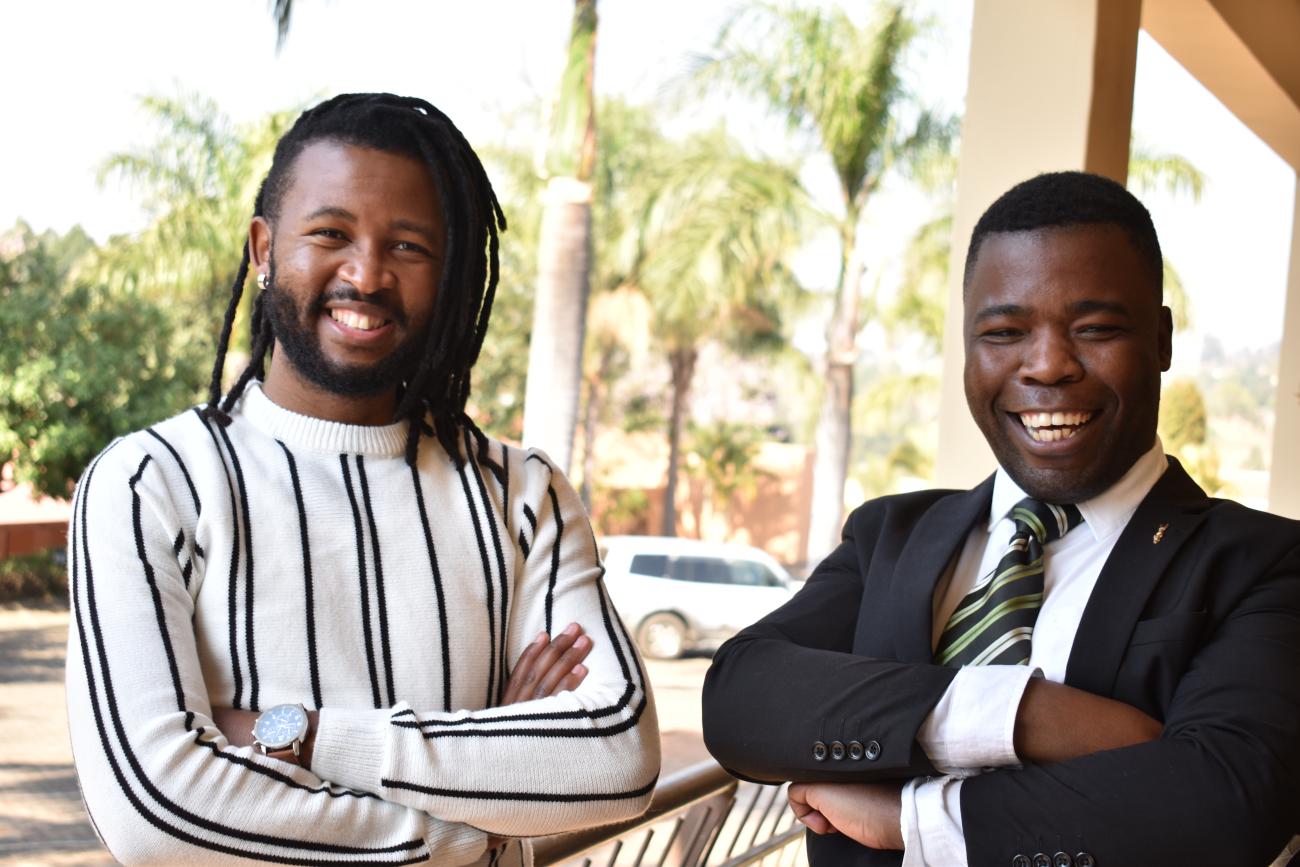The UN Resident Coordinator Hosts a UN75 Dialogue with the LGBTQI Community, People Who Inject Drugs, Transport and Sex Workers

The UN Resident Coordinator, with UNFPA and AMICAALL hosts a UN75 Dialogue with LGBTQI and other minority groups at Happy Valley Hotel on Thursday, 6th August.
On Thursday, 6th August 2020, in collaboration with UNFPA and the Alliance of Mayors’ Initiative for Community Action on AIDS at the Local Level (AMICAALL), the United Nations in Eswatini hosted an incredible and revealing UN75 dialogue with the LGBTQI (Lesbian, Gay, Bisexual, Queer and Intersex) community and minority groups including sex workers, people who inject drugs and transport workers.
AMICAALL seeks to reduce the social and economic impact of the HIV/AIDS epidemic on communities in Africa. Much like during the HIV/AIDS epidemic, minority communities such as the LGBTQI community are particularly vulnerable to the impact of COVID-19.
The UN Resident Coordinator, Ms Nathalie Ndongo-Seh, led the important conversation, stating in her opening remarks: “The UN Secretary-General, Mr António Guterres, noted that many LGBTI people are experiencing heightened stigma as a result of the coronavirus, as well as new obstacles when seeking health care. This is happening when LGBTQI were already facing bias, attacks and murder simply for who they are or whom they love.
There are also reports of COVID-19 directives being misused by law enforcement officers to target LGBTI individuals and organizations. In Eswatini, LGBTQI continue to struggle for recognition as well as to end discrimination. I have noted with concern the findings of a recent study that showed that more than 30% LGBTQI in Eswatini have been denied health care because of gender identity. Many more (41%) were reported to have been insulted in a health care facility after revealing gender identity.”
Attendees showed immense courage as they openly shared with the UN Resident Coordinator the deep impact of COVID-19, stigma and discrimination that they face daily.
Members of the LGBTQI community shared how, prior to COVID-19, some have been forced to move out of their homes to towns in order to avoid stigma from their families due to misunderstanding about gender identity. COVID-19 has forced people to return home to their families and live a fake life not to upset their families. A participant expressed how he could not wear lipstick as a man in avoidance of judgement and humiliation. “We are people too,” he expressed.
LGBTQI persons have also struggled to travel throughout the COVID-19 lockdown as their presentation at the time looks different to that shown on their identification documents and travel permits. “There is a need to raise awareness amongst security forces,” expressed an attendee.
Members of the Men who have Sex with Men (MSM) community shared how many MSMs are creative people who work in salons, the events and décor industries; services labelled as non-essential services during the COVID-19 pandemic. Thus, the MSM community experienced an immense loss of income throughout the essential lockdown.
Members of the MSM community who live with HIV have not been able to access their treatment timely due to travel restrictions. So too have they experienced that nurses who understand LGBTQI persons are no longer providing such services throughout the pandemic.
Many transport workers such as bus conductors and drivers have been retrenched during the COVID-19 lockdown, making provision for their families extremely difficult. However, the implementation of prevention measures brought to transport workers a safer and healthier environment in which to work.
So too have sex workers felt the far-reaching effects of the COVID-19 pandemic; with many being arrested for being on the streets, as well as facing exploitation by clients and police officers who understand their desperation to provide for their families.
Despite the stigma and discrimination experienced by such minority groups, participants expressed that they hope to see “an inclusive world where everyone is equal, can be themselves and their rights are respected.”
Hope for a unified world extends from the hope that countries will implement laws which protect the human rights and dignity of all people. Participants continued to share solutions to their daily struggles, stating that such laws need to be implemented, healthcare and psycho-social services need to be provided and accessible to such minority groups.
The UN Resident Coordinator expressed her gratitude and admiration of the courage displayed during the UN75 dialogue, closing her remarks in saying: “As the pandemic unfolds, the United Nations will continue to advocate against these and other injustices, as well as for the need for everyone to be protected and included in the response to the crisis.
I would like to conclude by saying, let us all stand united against discrimination and for the right of all to live free and equal in dignity and in rights.”
The feedback from all UN75 dialogues exchanges will be included in a report to be presented at the 75th session of the General Assembly in September 2020, in which Eswatini will serve in the privileged position as Vice President.















